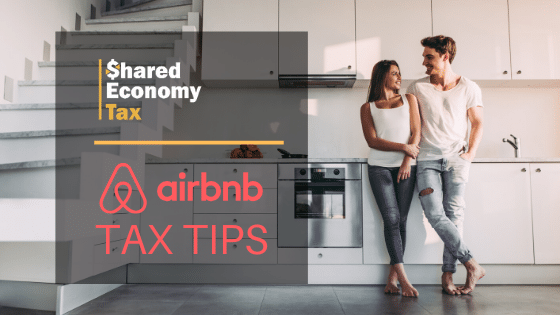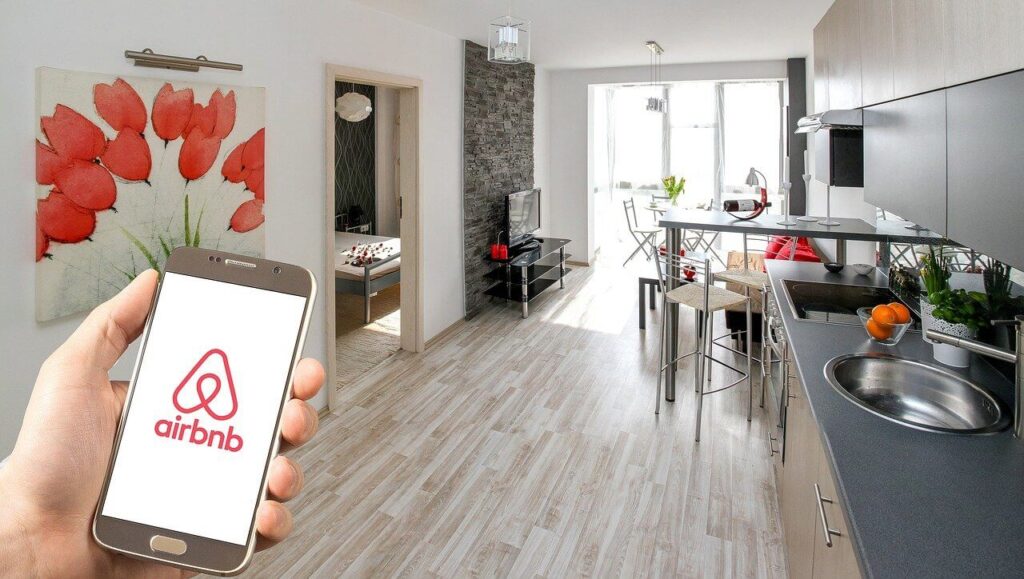One of the most important aspects of operating a successful Airbnb is bookkeeping. Proper Airbnb bookkeeping can make a difference in your bottom line and help you operate more efficiently. Let’s explore some bookkeeping solutions for Airbnb that will help make you a successful host.
Airbnb Bookkeeping Basics
One of the most important considerations for bookkeeping in the Airbnb business is reporting revenues. You can also deduct many expenses that you could not do if you were operating a different type of business that was not located in your home.
Knowing how to report revenues and which direct deductions you can take has a significant impact on your profits.
Airbnb bookkeeping systems differ from most businesses. It’s a hospitality business that has many of the same bookkeeping characteristics as the hotel and accommodations industry.
However, it’s also a business that you can run from your home or properties that you own.
As a result, hosting is best described as a home-based business hospitality industry. It’s a unique business model, making finding the right bookkeeping solutions even more important.
Getting Started with Bookkeeping for Airbnb
The most important step to managing your bookkeeping tasks for your Airbnb is to set up a system that is easy to follow, takes little time, and that allows you to have everything you need where you need it.
The Old School Method
You can choose the old-school method that involves tracking your transactions manually in the ledger book or using a spreadsheet, like Excel or Google Spreadsheets.
This method takes a little more time, and you will have to do all the record-keeping and calculations by hand.
Using the old-school method, you will need to save and scan all of your receipts into a PC. You can also keep paper copies in a folder, but keep in mind that you must maintain all your records for at least five years.
The old-school method has several drawbacks. The first of which is that it is time-consuming, and it takes up more space than using software designed for Airbnb bookkeeping.
Business owners have been using the old school method for keeping their accommodations business accounting for centuries.
Bookkeeping Software
Fortunately, accounting software like QuickBooks, Xero, and others, makes life much easier. Software solutions allow you to make a few entries, scan in your receipts, and do the calculations for you.
Many bookkeeping apps have built-in bookkeeping templates for Airbnb, so they’re very user-friendly and easy to use.
Bookkeeping apps can track transactions, maintain records, and generate the reports that you need. The best part about accounting software is that it saves you time so that you can get back to what is most important, keeping your guests happy.
Some software carries subscription or licensing costs, but many free options are available.
The Bookkeeping Software for Airbnb
Here are some of the best Airbnb bookkeeping software solutions:
- Quickbooks
- Topnotepad
- Freshbooks
- Instabooks
- Xero
- Wave
- AppFolio
- Rentec Direct
- Buildium
Cash vs Accrual Accounting
One of the first decisions you will need to make, whether you choose the old school method or use Airbnb software solutions, is whether to use the cash or accrual method of accounting.
The accounting method reflects how cash flows in and out of the business. The cash method records transactions at the exact time when the cash flows into or out of the business.
The accrual method recognizes revenues at the time they are earned and expenses when they occur, regardless of when the money actually changes hands.
You must decide which of these methods is best for you from the beginning because once you declare to the IRS which one you are using, you cannot change it in the future.
Each of these methods has significant tax implications, and you should do your research before deciding which one is right for you.
Airbnb Expense Tracking Considerations
A good Airbnb bookkeeping template will get you on track with keeping the records you need where you need them. Understanding the IRS rules and how they apply to an Airbnb business is something with which every host should become familiar.
Here are a few tips to make sure your business operates according to the IRS rules.
1. Asset vs Expense
One of the most common tax mistakes that new Airbnb businesses make is misreporting assets versus expenses.
The IRS has simple rules for determining how to tell the difference. In general, anything that costs more than $2,500 is considered an asset, and anything below that is considered an expense.
2. Mixed-Use Property
If you live in a part of the property where the Airbnb is located, this is considered a mixed-use property. This is opposed to a property that you purchase where 100% of it will be used for your Airbnb business.
Maintaining a mixed-use property means you can only deduct a portion of your expenses. The size of the deductible portion is based on the percentage of time the property is used for business purposes.
However, business expenses relating entirely towards your business will remain fully deductible, such as advertising, office supplies, etc.
Conversely, you must allocate household expenses for mixed-use properties according to its business use. For example, you can only deduct a portion of your utilities according to the percentage of floor space used by your Airbnb rental.
3. Home Improvements vs Repairs
Another mistake many Airbnb operators make is that they fail to recognize the difference between a home improvement and a repair. In addition, you must be able to recognize when a home improvement is for personal reasons or when it can be deducted as a business expense.
Classifying Guest Accommodations
Another important consideration is how to classify guest accommodations. Airbnb allows you to offer several types of property. All of them have different tax considerations. These include:
- Entire property rental
- Private rooms
- Shared rooms
- VRBO vacation rental
- Freestanding property
- Attached property
- Luxury property
Airbnb Bookkeeping: Closing Thoughts
Now, you know a few basics about bookkeeping and accounting for your Airbnb business. This is by no means a comprehensive guide, but it gives you a few things you need to think about as far as taxes and record keeping are concerned.
Creating a solid Airbnb bookkeeping system should be at the top of your priority list. You should have a reliable system in place for tracking expenses well before you open your properties to guests.
The Airbnb Tax Specialists
Shared Economy Tax specializes in assisting Airbnb hosts with their bookkeeping and accounting. We understand the nuances sharing economy entrepreneurs face, and we’ve been helping hosts save money for years. Contact us today for a complimentary one-on-one strategy session, and see how much you can save on taxes with an Airbnb tax expert on your side.
Don’t forget to sign up for our tax tips newsletter using the email signup form below!

